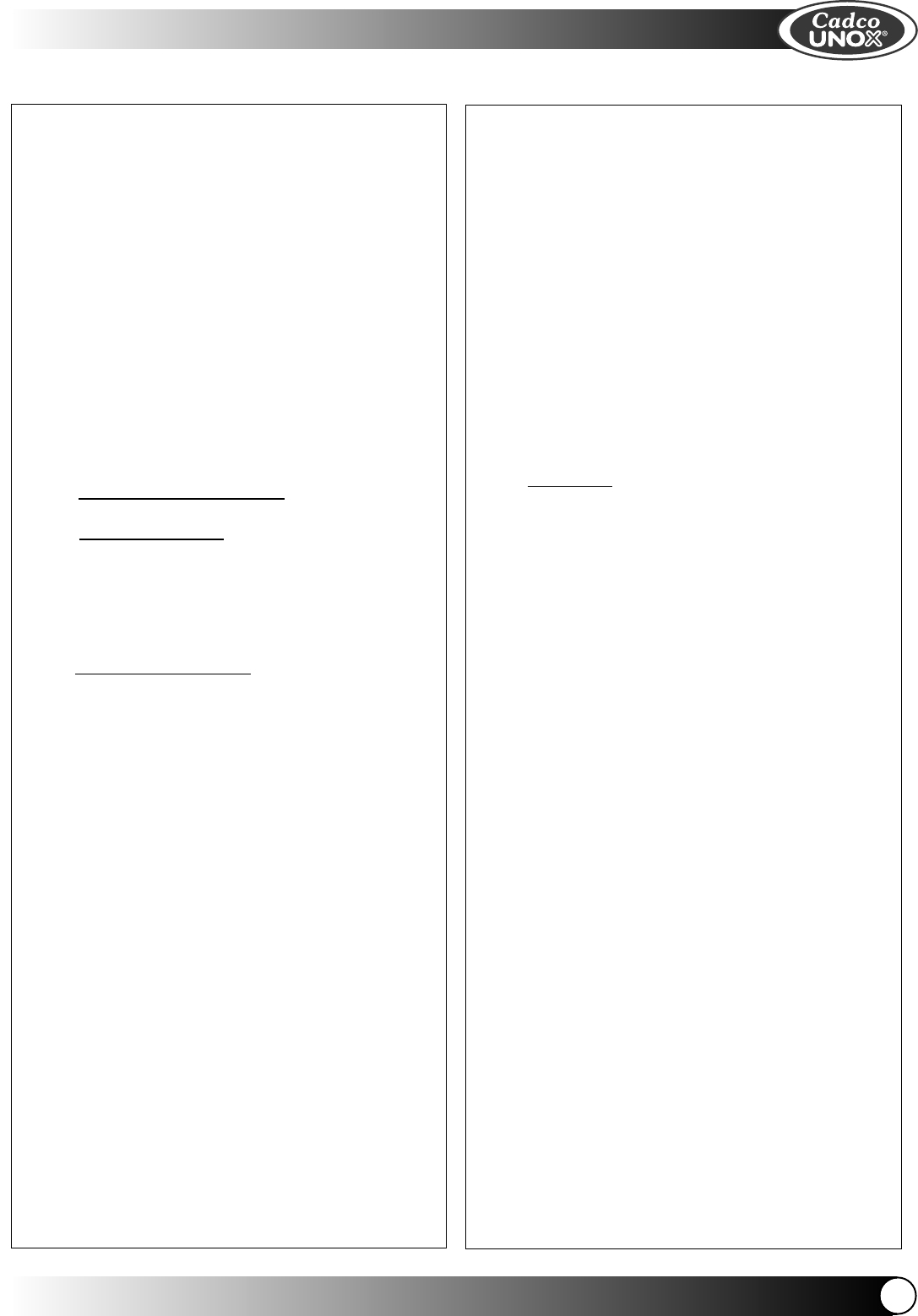
- Securely replace the black safety cover.
- Begin food preparation after the oven is
preheated.
If the thermal breaker shuts your oven off,
before turning your oven on, be sure to
check your entire circuit to verify that the
total amps being drawn by all the appli-
ances, lights, etc. on that circuit do not
exceed the amps available on that circuit.
All repairs should be performed by a Cadco
authorized service technician using only gen-
uine Cadco-Unox parts.
III. CONVECTION
COOKING
Your Cadco-Unox oven is designed to pre-
pare food, and it should be used for that pur-
pose only.
1. COOKING PRINCIPLES
Accurate times and temperatures assure
perfectly cooked foods. Cooking is an art, not
a science. People will never agree on the
meaning of “done”, or “perfectly cooked”.
Here are some tips that will help ensure suc-
cess with your convection cooking.
- The temperature of the food going into the
oven will affect the cooking time. Frozen
foods take longer to cook than refrigerated
foods.
- Three trays of chicken will take longer to
cook than three pieces of chicken.
- To convert your conventional oven recipes to
convection oven production simply reduce
the cooking temperature by 25F-30F
degrees.
- Most recipes can be converted by having
shorter cooking times and/or reducing your
cooking temperatures.
- We suggest that you use an instant read
probe to help you determine the actual
internal temperature of your foods. This will
help you safely determine correct times and
ENGLISH
9
ENGLISH
temperatures.
- The oven operates between 175°F and
500°F.
Proper air circulation is necessary for suc-
cessful convection cooking in all convection
ovens. We suggest you allow a proper clear-
ance of 1-3 inches between pans when cook-
ing for best results.
Never salt foods while they are in the oven.
Salt can damage the interior surfaces of your
oven and affect the efficiency of the electrical
components.
2. COOKING
Convection ovens work by moving the air
inside the cooking chamber to create even
heat throughout the oven. This circulating air
simply removes the [cool] insulating barrier of
air between the cold food and the hot air in
the cooking chamber allowing the food to
cook more quickly. In essence, the moving air
makes heat hotter, as wind chill makes cool
colder.
You will want to rely on an instant read, pock-
et probe while you are getting used to con-
vection cooking. Your probe will help you
standardize times and temperatures as well
as assuring safe internal food temperatures
have been reached.
Preheat your oven to 30F-50F degrees high-
er than you the temperature you want to cook
at. After you have loaded the product into the
oven and the door is closed turn the temper-
ature back to your intended cooking temper-
ature.
Check cakes and cupcakes with a toothpick
to determine if they are done. If the toothpick
comes out “clean” [no batter on it] when
pushed into the center of the product, it’s
done!
We recommend roasting meats on a cooking
rack, in a shallow sided pan to allow air to
circulate all around the roast.


















